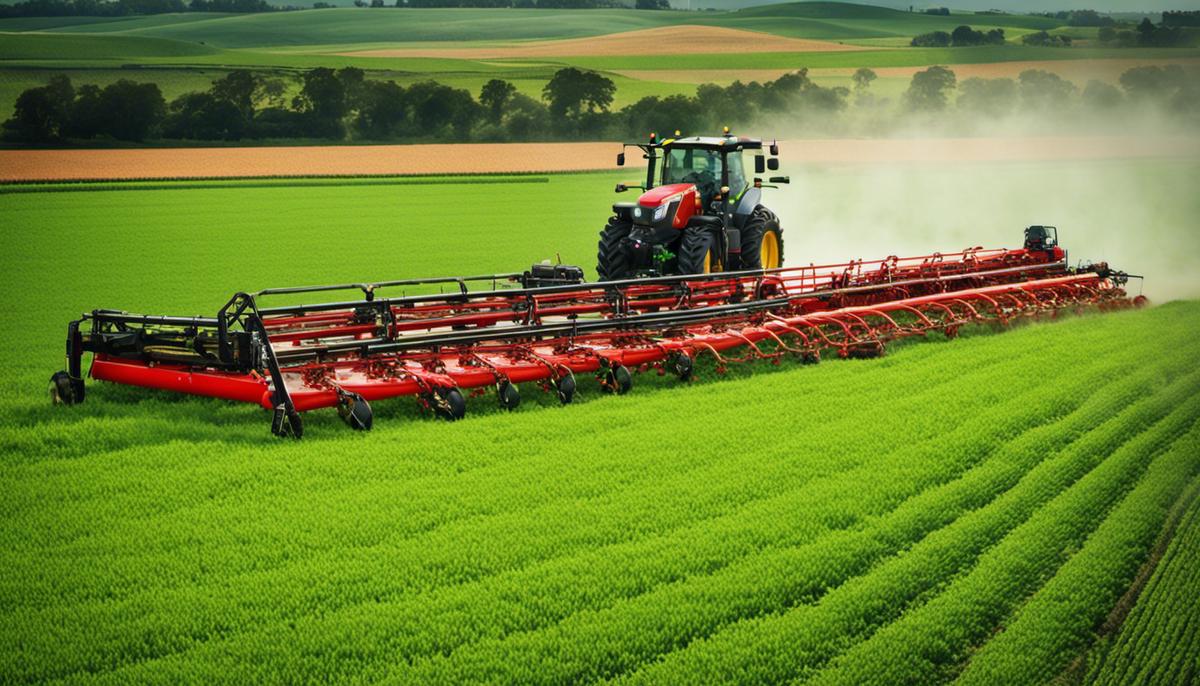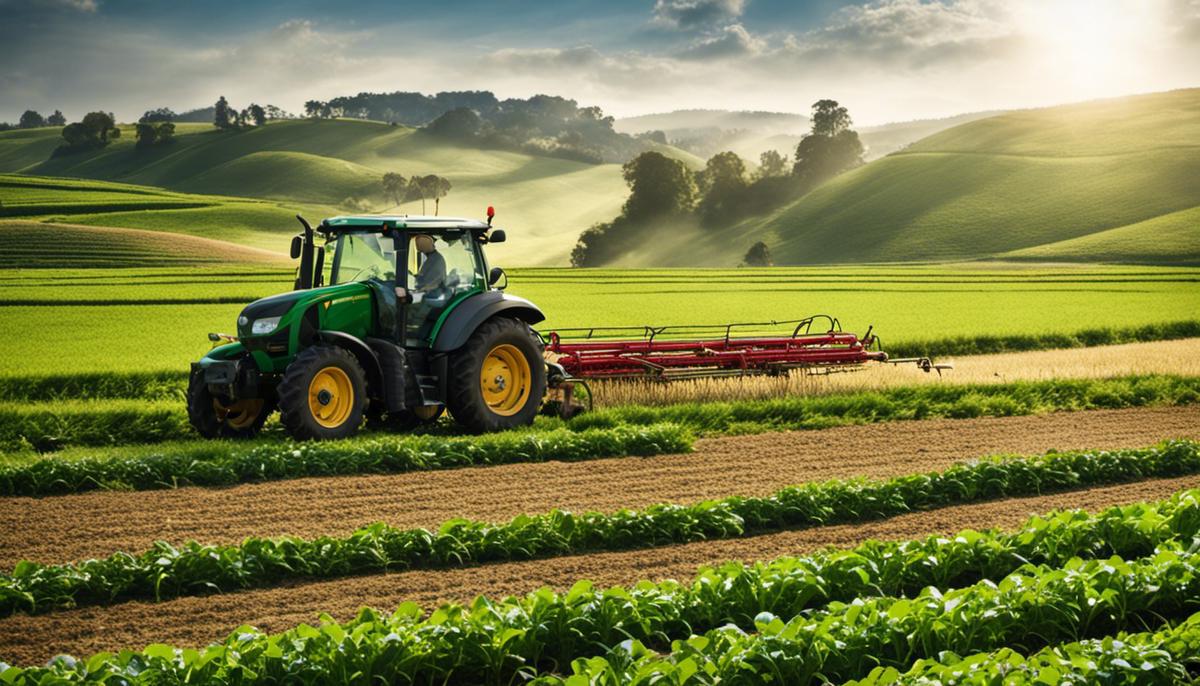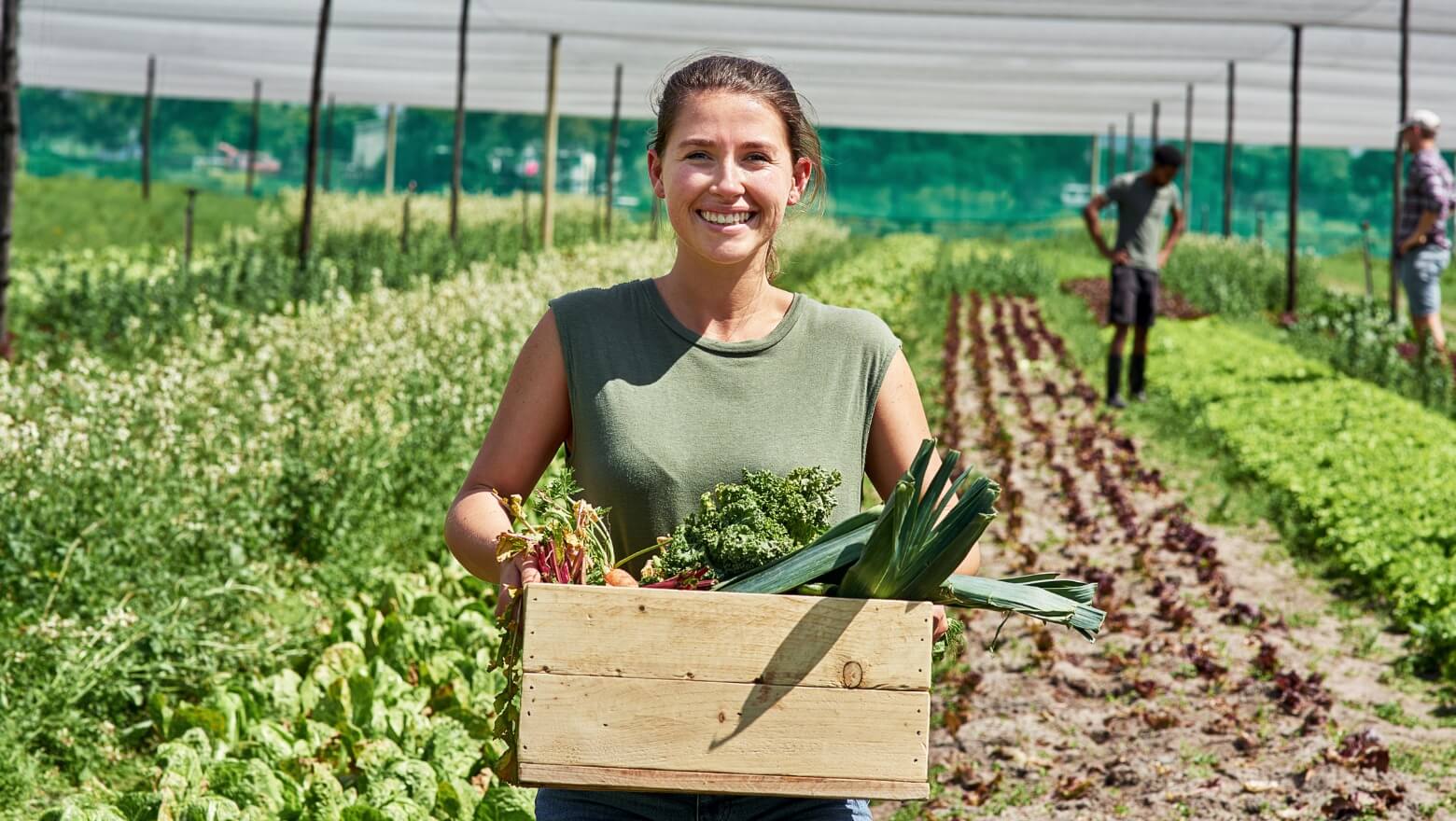

Agridisk
Egypt - Alexandria

Top 5 ways to learn how to earn more from farming?
Description: In the constantly evolving world of agriculture, there are numerous avenues to boost earnings for farmers. This focused look at enhancing agricultural income digs deep into modernistic agrarian methodologies, the increasing appeal of eco-friendly farming, and direct promotion methods with a potential for abolishing the middleman. It is in understanding these facets, where aspects like precision farming, automated irrigation systems, and a myriad of other advanced machinery lie. These tech-innovations have demonstrated significant advancement in crop yield improvement and waste reduction. Furthermore, we'll peek at sustainable and organic farming perks - techniques that are progressively gaining popularity owing to the amplified demand for organic goods and environment-conscious beliefs. Finally, equipping oneself with effective marketing strategies from direct selling at farmers markets, joining forces with community-supported agriculture, to tactics of online promotion - all inevitably pushing profit margins up. In the ever-evolving world of business, agility is not only desired, it's demanded. Industries that previously seemed impervious to tech disruption, such as farming and agriculture, are now experiencing it full throttle. With the right technological tools at your fingertips, it's possible to ramp up your farming profits. Here's the lowdown on how to exploit these advancements and maximize the potential for superior returns in your agri-business venture. First and foremost, get acquainted with precision agriculture. Precision Agriculture or farming involves the use of GPS tracking systems and satellite imagery to monitor crop yields, soil levels, and weather patterns to increase efficiency on the farm. These technologies can help reduce expenses by identifying exactly where resources are needed, reducing waste and increasing crop yields. Consider investing in mechanization and automation tools such as driverless tractors and drones. Autonomous tractors can work day and night, while drones can help monitor crops, and together can bring about a whole new level of efficiency. The upsurge in your profits as a result of increased productivity will soon outweigh the initial investment. Embrace smart farming by integrating Internet of Things (IoT) into your farming practices. IoT devices can monitor crop health, climate, and even predict diseases. They also assist farmers in making critical decisions such as when to irrigate or harvest much more accurately. Additionally, delve into data management programs. Software that can analyze data from a field can result in more precise planting, fertilization, and harvesting methods. This technology can help farmers maximize crop yields while reducing costs associated with planting, fertilizing, and water usage. Try implementing mobile technology and apps to stay updated and make instantaneous decisions. A myriad of agronomy apps are now available that provide farmers with real-time information about weather, pests, and soil conditions. Lastly, don't shy away from exploring biotechnology. Genetic modification, cloning, and nanotechnology can increase yield, reduce vulnerability to diseases, and maximize the use of available resources. These scientific methods, while controversial in some circles, have the potential to significantly amplify profits and sustainability. Harness the power of these modern technological tools, and it's possible to transform your farming methods, lower costs, and watch as your profits skyrocket. Just remember - the key to success lies not just in having the right tools, but the right ones at the right time, used in the right way. Happy farming! As the global economy strives towards more environmentally-sensitive models, organic and sustainable farming methods have taken center stage. These methods not only benefit our environment but also promise lucrative returns, as they tap into a market concerned about the quality and ethical production of their food. The trend toward organic food has skyrocketed, demonstrating an insatiable consumer demand. It's essential to capitalize on consumers' increasing calls for organic products, framing your business model around ethical, healthy, and sustainable methods. Organic farming often translates to higher retail prices, which is advantageous for those in the sector aiming to maximize profits. Climate-smart agricultural practices such as agroforestry, crop rotation, and green manure increase crop yield and resilience while lowering input costs, aligning both economic and environmental benefits. By practicing these methods, it's possible to take advantage of government incentives and grants designed to promote eco-friendly farm practices. Implementing sustainable practices also enhances soil health, productivity, and farm biodiversity, reducing reliance on artificial fertilizers and pesticides. This reduction means fewer overheads in the long run and thus improves margins. Furthermore, healthier soil results in superior crop yield and quality, ultimately driving higher sales and profits. A shift to organic farming also provides an opportunity to penetrate new, profitable markets. Such markets include farm-to-table restaurants, organic grocery stores, and farmers’ markets, where customers are willing to pay a premium for fresh, chemical-free organic produce. Adopting a direct sales approach bypasses the need for a middleman, ensuring the lion's share of the profit goes directly into the farmer's pocket. Capitalize on the power of branding and marketing strategies that convey the organic/sustainable image of your operations. In an era where consumers are progressively aware, resonate with their values by emphasizing your commitment to environmental conservation. A reputation for sustainability and organic methods can set your business apart from the competition, thus commanding higher prices for your products. Diversification is another significant facet of sustainable and organic farming models. Exploring non-traditional, high-value crops can provide a steady stream of income during off-peak periods. Additionally, diversification reduces risk – as one crop might fail, another could thrive. Overall, switching to sustainable and organic farming practices not only ensures environmental preservation but also opens up revenue streams that were otherwise inaccessible. Embracing a sustainable psyche in agriculture serves as the backbone of future financial success and holds the key to unlocking new levels of economic prosperity. Make no mistake, eco-friendly farming is not just a trend or a fad but a captivating business model that balances profit margins with ethical, responsible environmental practice. Extending Direct Marketing to Farming Enterprises Expanding upon contemporary innovations like precision agriculture, the Internet of Things and biotechnology, there lies a veritable expanse of untapped avenues in direct marketing strategies. These strategies can significantly amplify revenues in farming. Moreover, with the burgeoning demand for organic food and a business model pivoting on ethical, sustainable practices, the potential for growth in the present market is enormous. Here are some possible direct marketing strategies that are yet to be leveraged extensively that could transform farming revenue models. Starting with value addition, farmers can explore opportunities to maximize revenues by leveraging processes that add value to their raw agricultural products. Indulging in on-site processing, manufacturing or packaging agricultural produce can raise value. Entrepreneurs can also consider establishing local labels for their products and selling them directly to consumers, bypassing middlemen to increase their profit margin. Secondly, leveraging direct-to-consumer sales channels can aid in generating additional revenue. Besides traditional farmers' markets, Community Supported Agriculture (CSA) shares, roadside stands, Pick-Your-Own patches, and online sales are all emerging as profitable venues through which farmers can directly connect with their end-consumer, thereby reducing dependency on wholesale markets. Social media marketing is another powerful tool for farming enterprises seeking to expand their reach. Crafting an engaging, edutaining narrative around farming operations helps pivot the conversation towards the brand. It engages users, laying the groundwork for brand ambassadors who will champion the enterprise to their networks. For the agriculturally oriented entrepreneur, the digital space offers a low-cost, high-reward avenue for projecting their brand globally, tapping into niche markets unbeknownst to the local arena. Differentiation and niche marketing are strategies that can be leveraged in the farming business to cater to specific market segments. For instance, by growing uncommon or specialty crops (that are not typically stocked in supermarkets), farmers can cater to unique consumer needs, charging a premium for their specialty produce. Lastly, reinforcing the importance of customer engagement and loyalty programs in farming. With direct sales, farmers can build customer relationships, offer targeted discounts, loyalty rewards, and hold special members-only farmers market days. Such efforts not only build customer loyalty but also enhance customer base and boost revenues over time. In conclusion, the vast array of direct marketing strategies available to today’s farming professionals offers robust opportunities for revenue growth. Through experimenting with these strategies, evaluating consumer feedback, and iterating to refine their approach, farmers can find innovative and profitable avenues to effectively market and sell their products. From value addition and direct-to-consumer channels, to leveraging social media and adopting niche marketing, the potential for revenue growth lies undeniably abound. Seize these strategies and transform your farm's path to profit. Farmers have persistently discovered and mastered methods to cope with changing trends and unpredictably fluctuating markets. Acquiring sophisticated farming technologies, adopting eco-conscious farming methodologies and mastering certain direct marketing strategies are necessary steps towards creating a lucrative farming enterprise in today's world. By appropriately utilizing modern agricultural technology, integrating sustainable and organic farming practices and pulling in more market traction with direct sales, farmers have the potential to see increased returns on their investment. The ultimate reward is not only a successful farm operation that can sustain generations to come but also a healthier planet and a consumer base that values quality and sustainability. Agriculture, in this era, has become one of the best ways to profit, and it is also a noble act for future generations, and therefore ways to profit from it have become the thing sought by many, and in order to profit from it more, you must follow the correct steps, to avoid losses and get the best opportunities for profit, and here are five Steps to profit from farming. Choose sandy, well-drained soil, as it is considered the best type of soil for cultivation, because soil quality is very important in achieving the highest amount of profits, as well as reducing agricultural costs, and ensuring no losses. Choose an agricultural engineer to examine the types of soil and identify the plants that are compatible with them, in order to ensure an abundant crop. Whatever the price of the seedling, if it is from a reliable source and has assured you of its resistance to diseases, and you can also replace it if the opposite is proven, then it is the best for the purchase process. Strong seedlings grow quickly, save you a lot of medicine, and resist disease. Benefit from the experts in knowing the correct fertilization process for your farm, and thus you will provide food for the plant, and give you an increase in the yield. Follow the correct and modern experiences of the irrigation process, whether by drip irrigation, pumps, or modern means, because the lack of water has great harm to the plant. Be sure to be present with your project, devoted to it, and do not let anything else distract you from it. Develop a pre-plan for production, marketing and sale, as well as expanding and increasing the project.Modern Agricultural Technology

Sustainable and Organic Farming
Leveraging Sustainable and Organic Farming for Economic Gain

Direct Marketing Strategies


1- Choose the right soil for planting
2- Choose disease-resistant seedlings
3- Correct fertilization
4- Continue watering regularly
5- Focus on your project